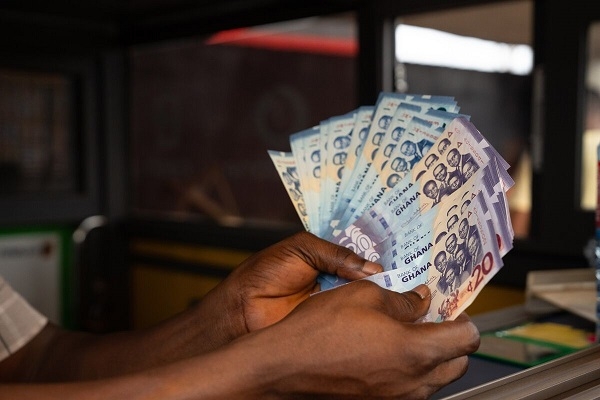France, Spain, Barbados, Antigua, Sierra Leone, Kenya, and More Declare War on Luxury Travel with Bold Climate Tax Targeting First Class Flyers - Travel And Tour World
Sunday, July 6, 2025

Eight countries—France, Spain, Kenya, Barbados, Benin, Sierra Leone, Somalia, and Antigua & Barbuda—have declared war on luxury air travel by launching a bold new climate tax targeting first-class, business-class, and private jet passengers, in a coordinated effort to make the wealthiest flyers pay for the climate damage their high-emission journeys cause. Introduced during the UN International Conference on Financing for Development in Seville, this aviation levy aims to raise up to €78 billion annually to fund sustainable development and climate resilience in the world’s most vulnerable nations. Backed by the European Commission and spearheaded by the Global Solidarity Levies Task Force, the coalition seeks to rebalance a global travel system that allows a privileged few to pollute excessively while low-emission nations struggle to adapt. Each of the eight countries brings a unique tourism and aviation footprint to the table, but they are united in demanding financial accountability from the world’s elite flyers.
Led by the Global Solidarity Levies Task Force (GSLTF) and supported by the European Commission, the coalition estimates the proposed premium flyer levy could raise up to . The coalition aims to redirect wealth from the most carbon-intensive travelers to climate-vulnerable nations struggling to fund infrastructure, resilience, and clean energy initiatives.
The coalition is not merely symbolic. It brings together both developed and developing nations—each with vastly different tourism economies—but united by the belief that luxury emissions must come with global responsibility. Environmental advocates such as Greenpeace hailed the plan as a long-overdue rebalancing, while airline industry leaders, including IATA, warned that the proposal could destabilize aviation’s recovery and hinder investment in decarbonization.
Below is how each country is aligning its tourism growth with climate accountability through this bold new initiative.
France recorded a , solidifying its status as the most visited country in the world. That surge translated into approximately , driven by both leisure and business travel. Its international gateways—Charles de Gaulle, Orly, and Nice—handled millions of high-end travelers, many of whom flew in business or first class.
By joining the coalition and co-chairing the GSLTF, France is leveraging its global influence to drive structural change in aviation finance. French President Emmanuel Macron emphasized that those who’ve benefited most from globalization—including luxury air travelers—must help fund the climate transition. France’s support for a global premium flyer tax comes not just as policy but as principle: that climate justice must begin with those who contribute most to the problem.
The country has also seen increased demand for sustainable travel options and is pushing airlines and airports to modernize with greener technologies. Still, France argues that no amount of green aviation investment offsets the emissions imbalance of premium travel without a fair redistribution of cost.
Spain welcomed , a new national record. The country saw a sharp rise in both leisure and business travelers, with airports like and among the busiest in Europe. Total tourism spending reached , making Spain a prime destination for high-spending visitors. The first quarter of 2025 continued this trend with , growing 5.7% year-over-year.
Despite the boom, Spain has joined the climate tax coalition, arguing that economic growth must be accompanied by environmental responsibility. As a major European gateway for luxury travelers, Spain understands the environmental cost of elite air traffic. The coalition’s proposal allows Spain to maintain mass tourism while targeting the wealthiest flyers—those most responsible for outsized carbon emissions.
Spain’s decision signals a clear departure from unchecked growth models. By supporting the aviation tax, it reinforces that premium comfort in the air must carry a premium cost for the planet.
Kenya saw its international tourist arrivals jump to , up 14.7% from the previous year. In the first quarter of 2025, over arrived via and , signaling strong momentum in both safari and conference tourism.
As a co-chair of the GSLTF, Kenya has taken a bold stand against climate inequality. The government argues that while African nations like Kenya contribute minimally to aviation emissions, they endure the harshest climate impacts—droughts, floods, and biodiversity loss. Kenya believes that the high-emission lifestyles of business and first-class travelers should help fund the resilience of climate-impacted regions.
The aviation climate tax, Kenya says, is not an attack on travel but a rebalancing of global responsibility. With tourism growth continuing, Kenya is pushing for financial models that serve both sustainability and fairness.
Barbados reported , alongside a 24.5% increase in cruise ship passengers. The country recorded in Q1 2025, growing 6.7% year-over-year. The has seen increasing traffic from North America and Europe, much of it involving premium-class passengers.
Barbados is not just a member but a of the coalition and one of its most vocal advocates. The island’s tourism minister has warned that while the rich fly in luxury, islands like Barbados suffer from rising sea levels, coral bleaching, and more intense hurricanes. The proposed climate tax, it argues, is a way to make those with oversized carbon footprints contribute to the survival of small island nations.
Barbados continues to invest in sustainable tourism, but without international financial support, its ability to adapt remains limited. The coalition allows Barbados to turn diplomatic pressure into action, targeting aviation excess to protect island futures.
While Benin’s tourism sector remains modest compared to others, its position in the coalition underscores the importance of global equity. The last available tourism data places international arrivals at in 2019, with likely post-pandemic recovery underway in 2024 and 2025.
Benin has invested heavily in heritage tourism, cultural preservation, and regional marketing. By joining the coalition, the country signals that even smaller tourism economies deserve a share in the global climate funding that a premium flyer tax could provide. It argues that climate responsibility must extend beyond voluntary commitments—it must be built into how the world finances air travel.
Benin supports taxing luxury aviation as a way to redirect revenues toward countries with limited climate budgets but pressing adaptation needs.
Sierra Leone reported , up from 119,005 the previous year. With tourist flows slowly increasing, the country sees the aviation tax as a way to ensure long-term climate stability while its tourism economy grows.
Sierra Leone’s participation in the coalition reflects a strategic move: to align with countries that demand that high-flying elites contribute more to global adaptation funding. The country is investing in new tourism corridors, community-based travel, and eco-friendly lodging—but it lacks the resources to scale these efforts at the speed required by the climate crisis.
Joining the climate tax coalition is, for Sierra Leone, a stand for global justice: those who fly in comfort must help those who face storms without protection.
Somalia is not widely known for tourism, but it is increasingly engaged in regional and humanitarian travel flows. In 2024, the country welcomed approximately , with alone.
Though its aviation infrastructure is still recovering from decades of conflict, Somalia has joined the coalition to call for a fairer system of global aviation finance. The country faces severe droughts, food insecurity, and climate migration—yet has no share in the emissions driving these problems.
By joining the coalition, Somalia affirms that even low-tourism countries have a voice in global climate decisions. It argues that the world’s richest flyers must help pay for the damage they leave behind.
Antigua & Barbuda reached new highs in 2024, with and . In Q1 2025, the island welcomed , marking a 6.7% increase from the previous year.
As a member of the coalition, Antigua & Barbuda is using its booming tourism performance to make a case for climate financing from premium air travelers. With air access crucial to its tourism economy, the island has no intention of restricting travel—but insists that first-class and private jet passengers contribute to the long-term survival of small island states.
Its main airport, V.C. Bird International, has seen a rise in high-end travelers. The government argues that a small tax on luxury tickets could have an outsized impact on building seawalls, upgrading infrastructure, and safeguarding livelihoods.
France, Spain, Kenya, Barbados, Benin, Sierra Leone, Somalia, and Antigua & Barbuda have declared war on luxury air travel by launching a global climate tax targeting first-class and private jet passengers to make high-emission flyers fund climate action in vulnerable nations. The new levy aims to raise €78 billion annually by holding the world’s wealthiest travelers financially accountable for their environmental impact.
The coalition of France, Spain, Kenya, Barbados, Benin, Sierra Leone, Somalia, and Antigua & Barbuda marks a shift in how the world talks about air travel. These countries are not banning flying, nor attacking tourism. They are calling for a fair price on luxury emissions—one that reflects not just the cost of a ticket, but the cost to the planet.
While airline groups warn of economic disruption, the coalition counters with a moral question: Should the wealthiest travelers fly above the consequences of their emissions while vulnerable nations drown, burn, or go broke trying to adapt?
With global travel surging in 2025, this fight is no longer theoretical. It’s happening now, and the eight countries at the heart of this coalition have just taken the first step toward change.
«Enjoyed this post? Never miss out on future posts by following us»













